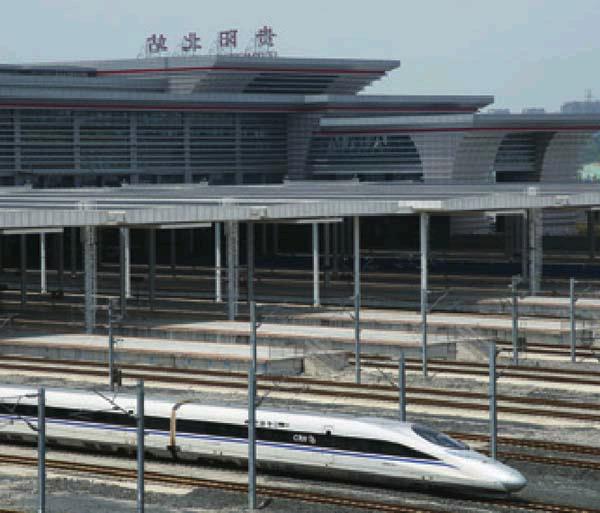The Takeaway From the Failed U.S.High-Speed Rail Deal
2016-07-12
What is the most important lesson that China should learn from the recent termination of its U.S. rail deal? It is not that the overseas markets are complicated or that trade protectionism threats are lurking. What it demonstrates is that the United States cannot keep up with the times, and its public cannot rid themselves of vested interests, breaking the hope that the United States would enter an era of high-speed rail transport.
It is true that trade protectionism exists in America, since some forces in the United States regard China as their largest international rival. Nonetheless, trade protectionism seems not to have been a major reason for XpressWests unilateral termination of its deal with China Railway International Group to build a high-speed rail line from Los Angeles to Las Vegas.
Although the Buy America Act may be considered as an obstacle to deals with China, it does offer some exceptions. The act, which seeks to ensure that “infrastructure projects are built with American-made products,” may be waived if using the domestic material will increase the cost of the overall project by more than 25 percent.
It is by these exceptions that the CRRC Corp. Ltd. and some other Chinese companies have been exempted from the act, and have already been producing high-speed rail equipment in their U.S. factories. Therefore, XpressWest probably didnt see the act as a sticking point when signing the contract with China Railway International Group.
The reason for XpressWest backing out may have been purely due to business considerations. The estimated construction costs are too high, the competition from road and air transportation is too fierce, and financing is difficult to obtain. All of these factors could have pushed the company to terminate the deal.
The U.S. Federal Government faces various difficulties in advancing its plans to build high-speed railways. Stopping the construction of its first high-speed rail project will hurt the United States more than China.
Massive infrastructure projects have always powered a countrys economic growth. During the industrial revolution, for example, the creation of canals, highways and railways greatly boosted the British economy. After World War II, U.S. President Eisenhower, learning from Germanys autobahn network, pushed for a similar system in the United States, which eventually replaced Germany as the owner of the worlds largest network of expressways.
The United States used to have an outstanding capacity to undertake infrastructure projects but has nevertheless fallen behind in terms of high-speed railways. This indicates that there are underlying problems in its governance structure and that vested interests may be obstructing the United States from making sustained innovation and progress despite their former support of such endeavors.
We must also recognize that vested interests obstructing innovation and progress come not only from a small number of elites, but also from the public. Why did the first industrial revolution start from the emerging cotton textile sector and related equipment manufacturing not the wool textile industry long-developed in Europe? Besides the advantages over wool which cotton provided during its processing and use, workers in the wool textile industry also thwarted the revolutions progress. Being fully dependent on wages from conventional labor, they resisted the mechanization of the industry. But in the emerging cotton textile industry, it was easier to hire new workers and to adopt new methods of production.
Due to this reason, although spinning frames were first designed for the mature wool textile industry instead of the emerging cotton textile industry, the former still fell behind the latter during the industrial revolution.
Therefore, China need not care about the failures of single projects as long as it has advanced technology and production capabilities. What China must learn from the United States is that if a country cannot keep up with the times, and if its public cannot rid themselves of vested interests, it will lose its capacity for innovation and progress.
